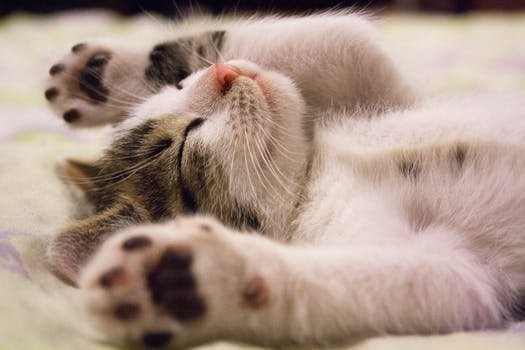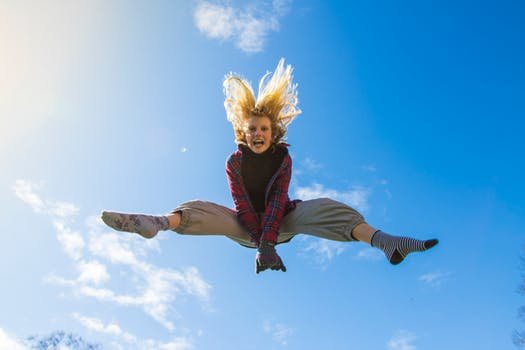Can napping make you smarter? Is there really such a thing as a “power nap”? Aren’t naps just for pre-schoolers, or the very elderly? Doesn’t napping interfere with your ability to sleep at night? Isn’t it just an unproductive waste of time?
There’s so much controversy about such a natural activity! The answers to the above questions, in order, are yes, yes, no, no, and no.
In fact, according to the latest research, NOT napping may actually be counterproductive and cause you to miss out on numerous health benefits, particularly if you're sleep deprived.

pexels-photo-267684.jpg
“Think what a better world it would be if we all—the whole world—had cookies and milk about three o’clock every afternoon and then lay down on our blankets for a nap”.
Robert Fulghum
Nature has predisposed us to get a little drowsy in the afternoon, coincident with a slight drop in body temperature that occurs naturally around 2-4pm. This drop occurs even if you sleep soundly at night and are well rested. This afternoon dip is associated with a decline in alertness and performance, which will be minimal if you’ve had a good night’s sleep the previous evening, but could be disastrous if you didn’t. Deaths from accidents due to sleep deprivation, and in fact deaths from all causes have a secondary peak during that afternoon dip, following their initial peak at night.
So, what can a little siesta do for you?
NAPPING REDUCES STRESS
The National Sleep Foundation calls napping “a mini-vacation.” Researchers found that levels of stress-related hormones, such as cortisol, were lower in people who napped. Having a nap helps your body eliminate excess cortisol and other stress hormones and contributes to maintenance of healthy hormonal balance.
NAPPING IS GOOD FOR YOUR HEART
A nap now and then could be just as important to protecting your heart health as eating right or exercising. A study of 23,681 healthy individuals who had no history of coronary disease, cancer, or stroke found that those who took a 30 minute nap at least three times per week had a 37% lower risk of death from heart disease. Also, countries where afternoon siestas are part of the routine typically have lower levels of heart disease.
NAPPING MAY OFFSET THE EFFECTS OF INSOMNIA OR SHIFT WORK
Here’s some really encouraging news! If you’re tossing and turning at night, or you’re deliberately burning the candle at both ends due to the demands of work, school, or a new baby, you’ll be relieved to know that napping really can help pull you through. While it is certainly ideal to get a full 7-8 hours of sleep at night, scientists now believe that sleep is cumulative. We don’t necessarily have to get it all in one dose so to speak and apparently napping can, to a surprising degree, compensate for lack of nighttime sleep.
A study at the Henry Ford Hospital’s Sleep Disorders and Research Center comparing the alertness of people who had a full eight hours of sleep at night to those who slept less but napped during the day discovered that both groups were equally alert. Other studies discovered that 20-30 minute naps taken regularly (every 4 hours), known as polyphasic sleep, are the only way to reduce nighttime sleep below 5-6 hours and still maintain cognitive performance. So if you’re working the graveyard shift, a long 2-4 hour nap prior to the shift will help you stay alert .
NAPPING IMPROVES MEMORY AND COGNITIVE PERFORMANCE
Having a snooze clears your mind and boosts your ability to learn and memorize information. A NASA study revealed that participants who had a 30 minute nap after lunch increased their post-nap cognitive abilities by about 40%, while those who continued working without the nap scored lower on IQ tests and showed declines in short-term memory and overall work performance. Longer naps of 60 to 90 minutes appear to enhance these effects.
MRI scans revealed that the brains of people who nap remain more consistently active throughout the day while this activity declines as the day goes on in those who don’t catch a few winks.
NAPPING INCREASES CREATIVITY
We’ve all heard the advice to “sleep on a problem” and this is indeed wise advice. The post-nap brain has superior memory retention, clarity, and creativity. Sleeping is a like rebooting your brain. Instead of worrying about your problems have a nap. You’ll wake up with a fresh perspective, ready for new insights and innovative solutions.
Researchers discovered that napping produces a burst of activity in the right hemisphere of the brain, the side most strongly linked to creativity.
NAPPING BOOSTS ALERTNESS
A NASA study found greater levels of alertness in pilots who napped for 40-minutes, compared to pilots who didn't. Even naps of 20 minutes have been shown to perk up shift workers, according to Harvard Men’s Health Watch. One very small study found that even after just a 10-minute nap, study participants reported at least feeling more alert.
NAPPING REDUCES RELIANCE ON CAFFEINE
Spending too much at Starbucks? Are you finding yourself drinking more and more coffee just to get the same caffeine kick? Trapped in a vicious cycle of insomnia at night causing you to reach for caffeine during the day, which in turn contributes to more tossing and turning at night? Try a nap instead. It will replenish and energize you in ways that a cup of coffee can’t, and it won’t leave you jittery, anxious, or irritable like caffeine does.
HOW TO SET THE STAGE FOR A BLISSFUL NAP

pexels-photo-416160
Here are a few suggestions
• Avoid consuming caffeinated beverages at least 3-4 hours prior to nap time.
• If you want to snack prior to napping, choose foods with sleep-friendly nutrients such as bananas, oatmeal, cherries, yogurt or milk. A cup of chamomile tea may also help you relax.
• Ideally have a private room with a comfortable chair/bed/sofa but wherever it is, make sure you are in a safe area, obviously --some offices even have nap rooms
• Put your feet up if possible– bolster pillow under knees for support and comfort
• Use an eye mask or draw the curtains to darken the room
• Play relaxing music or a white noise machine to block out distracting sounds
• Cuddle up under a warm blanket – your body temperature drops during sleep – especially keep your feet warm. It's very difficult to relax with cold feet ---a hot water bottle helps a lot
If needed, set an alarm to gently awaken you at the appropriate time. If you’re feeling a little groggy after your nap, take a brief walk , preferably out in the sunlight, and that will quickly revive you. Exposure to light cues your body’s circadian clock that it’s time to be active again. Research indicates that afternoon naps typically don't interfere with nighttime sleep, so go ahead and grab a few zzzzzzz's.
WHAT IF YOU CAN'T FALL ASLEEP?
Don’t worry if you don't actually doze off: A 2007 study found that whether you sleep or not, a short period spent resting in bed, while it may not have the full benefits of a nap, is surprisingly rejuvenating and stress-relieving in and of itself.
HOW LONG SHOULD A NAP BE?
Naps are beneficial whether they are as short as 2 minutes or as long as 90 minutes. If you’re really exhausted, however, research shows that a 90 minute nap may help the most as it allows you to go through a full cycle of sleep, including slow-wave or "deep" sleep.
The length of your nap -- and the type of sleep you get -- helps determine the brain-boosting benefits. The mini-nap of 2 to 5 minutes can be surprisingly refreshing, helping to relieve muscle tension and tired eyes.
Naps of 5-20 minutes noticeably increase stamina, motor skills, and mental alertness. The 20-30 minute nap adds the benefits of enhanced memory and cognitive skills, while the 50-90 minute nap which may include slow-wave and REM sleep (dreaming) is great for decision making skills and creative problem solving
Now that you know how beneficial napping is, give yourself permission to catch a few winks. You’ll wake up more alert, intelligent, creative, and in a better mood.
Oh, and if asked why you're nodding off at your desk, just tell your boss you’re enhancing your productivity!
“Nature has not intended mankind to work from eight in the morning until midnight without that refreshment of blessed oblivion which, even if it only lasts 20 minutes, is sufficient to renew all the vital forces.” Winston Churchill
The effects of a really great nap.........

REFERENCES
http://onlinelibrary.wiley.com/doi/10.1111/j.1469-8986.1986.tb00600.x/epdf?
http://www.webmd.com/sleep-disorders/features/america-its-time-for-your-nap#1
http://www.webmd.com/sleep-disorders/video/breus-nap-benefits
